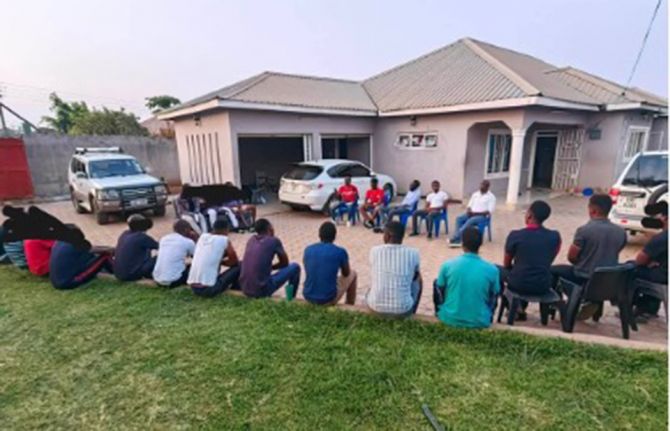
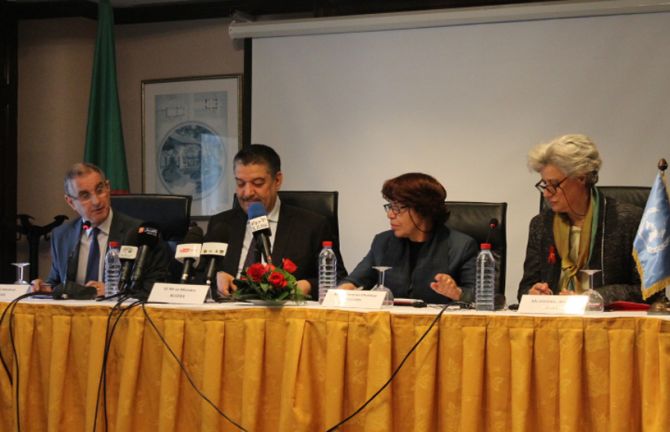
Update
Getting on the Fast-Track in the Middle East and North Africa
23 December 2015
23 December 2015 23 December 2015Governments, health experts and civil society activists have renewed their commitment to accelerate HIV testing and treatment programmes across the Middle East and North Africa as part of efforts to achieve the UNAIDS Fast-Track targets by 2020.
At a meeting hosted by the Government of Algeria and co-organized by UNAIDS and the World Health Organization (WHO), people living with HIV, national AIDS programme managers, representatives of civil society networks and the United Nations, technical partners and the media came together to assemble and reinforce the political leadership, technical capacities and resources to enable the rapid scale-up of HIV testing and treatment services.
The participants expressed their concern at the current low testing and treatment coverage in the Middle East and North Africa region. They stressed the need to mobilize additional resources and underlined that spending on the epidemic should be regarded as investment rather than expenditure. Discussions also highlighted the need to optimize rapid diagnostic technologies and to transition towards a test and treat model in line with the WHO’s new guidelines.
The meeting in Algiers ended with a regional declaration led by Algeria’s Minister of Health to guarantee a sustained commitment to the Fast-Track strategy ahead of the United Nations High Level Meeting on AIDS taking place in June 2016.
Quotes
“The choice to Fast-Track testing paves the way towards reaching the 90-90-90 targets and to ending AIDS by 2030.”
"Egypt has adopted the 90-90-90 targets in its recently launched national strategic plan, and Fast-Tracking testing comes as a priority to achieve these targets by 2020."
"If we test earlier we will save many lives and be on the way towards a generation without AIDS."
“Our region has a historic opportunity to be among the first to reach the 90-90-90 targets. To do so, we must close the testing and treatment gaps and leave no one behind.”
Region/country
Related


Update
Insights, advances and partnerships to reach key populations in Africa
23 December 2015
23 December 2015 23 December 2015The Second African Conference on Key Populations in the HIV Epidemic, devoted to key insights, key advances and key partnerships, took place in Dar es Salaam, Tanzania, from 16 to 18 December.
The conference brought together more than 200 researchers, policymakers, community actors, health service providers and government representatives from across Africa to discuss experiences, lessons learned and research findings regarding HIV and key populations. They include sex workers, transgender people, gay men and other men who have sex with men, people who inject drugs and others.
Key populations are vulnerable to HIV infection and have been left behind by the AIDS response. Punitive laws, stigma and discrimination are serious barriers throughout the continent for all key populations, with gender inequality contributing to the challenges faced by female sex workers. Migration of key populations within and between countries is another factor linked to their vulnerability to HIV.
Conference participants agreed that peer–led and community-based approaches work best and need scaling up. Effective interventions should be developed with close collaboration of key populations, as well. They also noted that data is important in policy dialogue and in facilitating community engagement.
The conference concluded with a call to action to ensure services for key populations are aligned to their needs and experiences and that key populations meaningfully participate in all areas that pertain to their health and well-being. Participants also called on governments to take down punitive legal barriers, to facilitate access to the justice system and to allocate more resources to serving key populations in the AIDS response.
Quotes
"The next phase of the response should focus on leaving no one behind as a way to end the AIDS epidemic by 2030. This needs addressing a combination of social, political, legal and programmatic gaps for key populations in our countries.”
“We will not reach zero new HIV infections, zero AIDS-related deaths and zero discrimination without the key and vulnerable populations.”
“Grassroot action on HIV is the most important way forward for the global response. Knowledge is only meaningful when shared.”
Region/country

Update
UNAIDS welcomes decision by the authorities in Malawi to drop case against two men and to confirm moratorium on arrests for same-sex sexual relations
21 December 2015
21 December 2015 21 December 2015UNAIDS has welcomed a decision by the authorities in Malawi not to pursue sodomy charges against two men arrested on allegations that they had sexual relations. UNAIDS has also applauded the government’s decision to maintain a moratorium on arrests and prosecutions for consensual homosexual acts.
Police charged the two men at the beginning of December after they were arrested in the capital, Lilongwe. They were released on bail while waiting to hear if they would face trial. The news that there would be no further action was also commended by civil society activists, human rights defenders and development partners.
Criminalization, violence, stigma and discrimination increase the risk of HIV exposure for men who have sex with men and other key populations in Africa and beyond. They also act as a barrier to key populations accessing HIV prevention, testing and treatment services. Ending the AIDS epidemic by 2030 will require all countries to create an enabling and protective environment for everyone, including for people most affected by HIV.
The confirmation of the moratorium on arrests and prosecutions for same-sex relations in Malawi comes several months after a new Penal Code came into force in Mozambique which officially decriminalized same-sex relations in that country.
Quotes
“I applaud the authorities in Malawi for their swift response in this case and for upholding their commitment to a moratorium on prosecutions and arrests for consensual same-sex relations between adults.”
Region/country
Related

Update
Empowering women living with HIV
28 December 2015
28 December 2015 28 December 2015Edith Tristán is a Panamanian woman who has been living with HIV for more than two decades. When she was diagnosed HIV-positive, antiretroviral therapy wasn't available in Panama and both her husband and son died of AIDS.
“It was a very difficult time, especially because of the lack of information about HIV,” Ms Tristán said. “My neighbours avoided me. At that time I ran a small food store and people would not buy from me. I struggled to support my mom and daughter with my job.”
Ms Tristán was one of the first people with HIV in the late 1990s to talk openly in Panamanian media about HIV and advocate for improved living conditions. “I started going to health institutions, looking for other people who were in my situation, to provide and receive support,” she said.
She then approached PROBIDSIDA, one of the first organizations in the country to promote and defend the human rights of people living with and affected by HIV. Later on she was named the focal point in Panama for the International Community of Women Living with HIV/AIDS.
Ms Tristán is now a well-known human rights defender. Since 2011, she works as an HIV Counsellor in the Specialized Unit of the Ombudsman’s Office. One of her main duties is to handle complaints of women living with HIV. “Women are still stigmatized and discriminated at work, at home by their partners and at health care centres,” Ms Tristán said. “In 2015 I have followed up on six cases of women living with HIV whose human rights were violated and haven’t resolved any of them.”
Panama has a concentrated HIV epidemic, with a low HIV prevalence rate in the general population but a markedly higher prevalence rate in key populations such as transgender women and men who have sex with men. Nevertheless, the number of new HIV infections among women over 15 years old has been increasing.
In Latin America, the vulnerability of women to HIV infection is associated with barriers they face. These include accessing information about HIV transmission, making decisions about their sexual and reproductive health, accessing testing and treatment services and obtaining the economic and social autonomy to protect themselves from violence. The risk of being infected with HIV is even higher for women who are victims of domestic violence.
Ms Tristán stressed, “The main problem is the lack of women’s empowerment. Fear limits their decision-making power. Women need to build up their self-esteem. With self-esteem a woman can defend her rights and seek information and help.”
To increase women’s empowerment, Ms Tristán coordinates a self-help group in Panama City and maintains regular contact with women living with HIV from around the country. Part of her job at the Ombudsman’s Office is to monitor clinics and pharmacies to check the quality of health care and services, visit antiretroviral therapy clinics and carry out home visits to talk with women and inform them about human rights, health and staying on treatment.
“When I look back, my fight has not been in vain,” Ms Tristán said. “I have taken advantage of every opportunity, not only for me but also to help others.”
Region/country

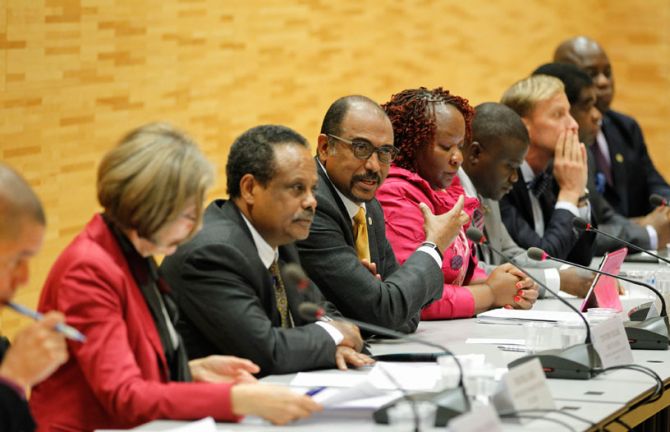
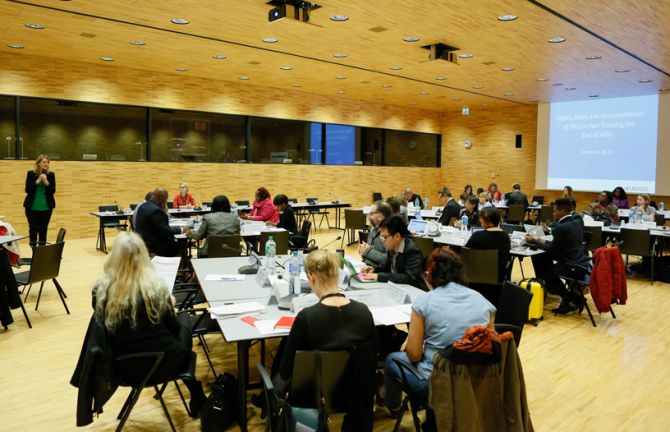
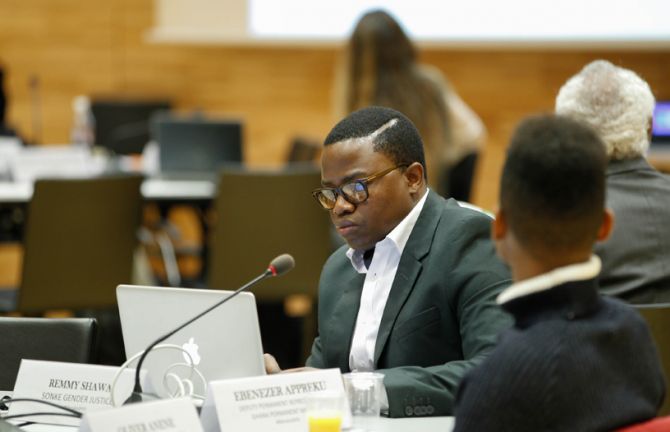
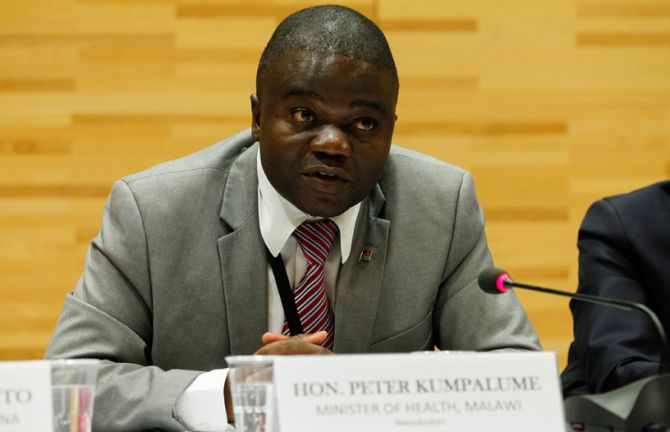
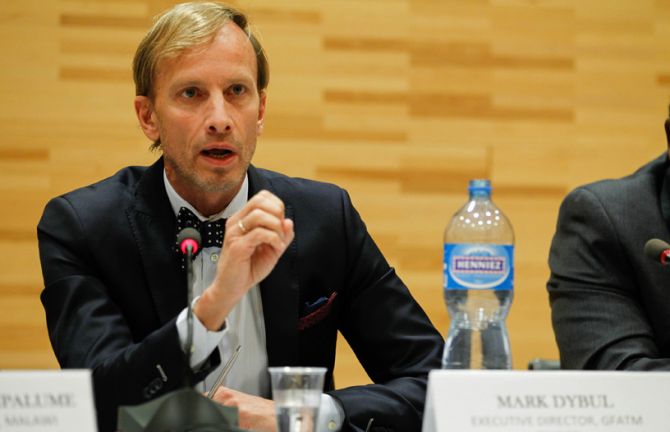
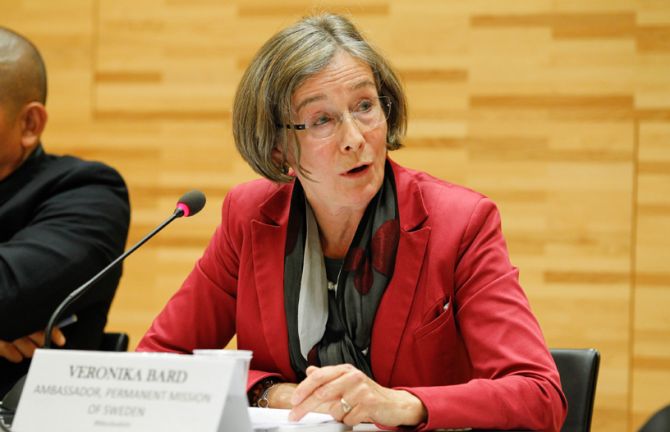
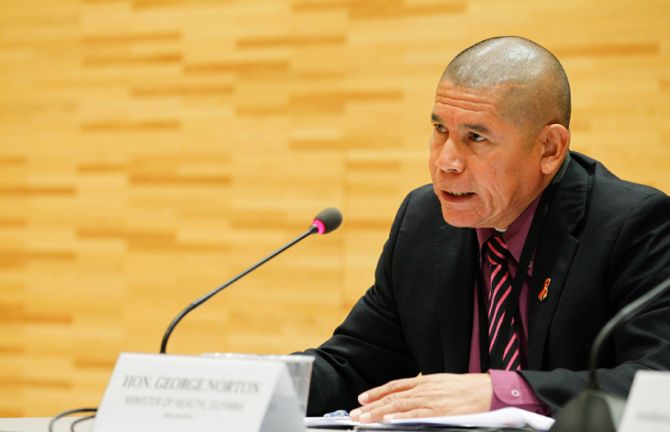
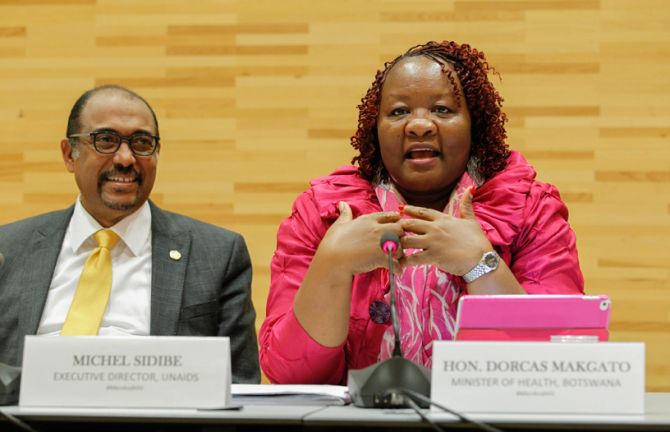
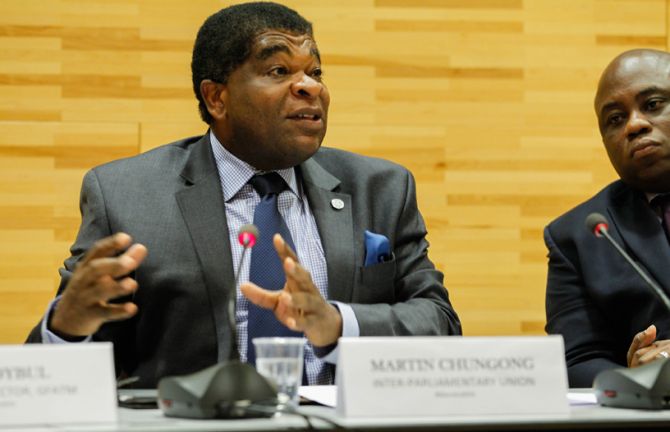
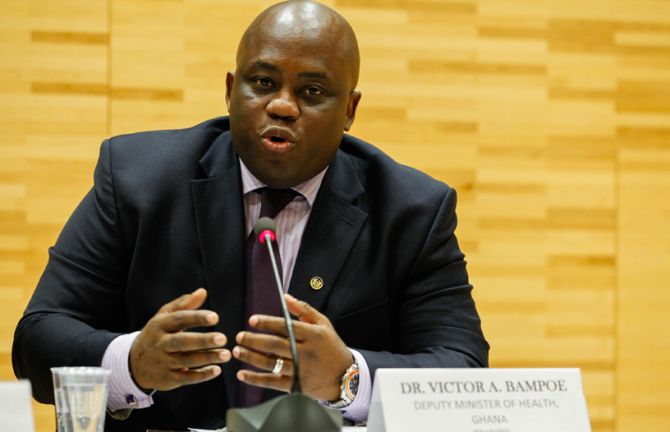
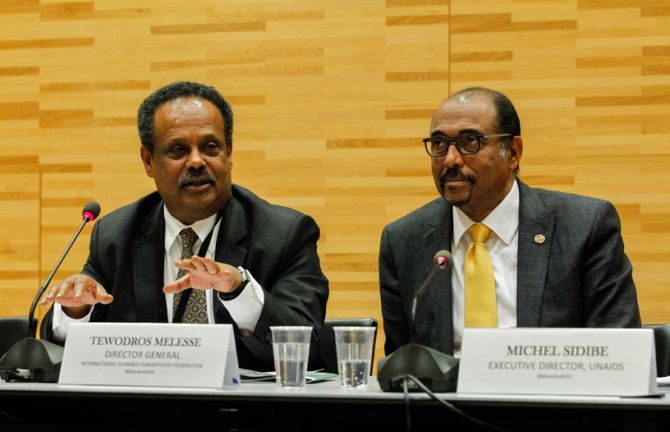
Update
Rights, roles and responsibilities of men in ending AIDS
16 December 2015
16 December 2015 16 December 2015UNAIDS, together with the International Planned Parenthood Federation and Sonke Gender Justice, convened a high-level meeting on the rights, roles and responsibilities of men in ending AIDS. More than 70 participants—including ministers of health from Botswana, Malawi and Guyana and the Deputy Minister of Health for Ghana—gathered from 10 to 11 December in Geneva, Switzerland, to map out a course of action to reframe the response to the AIDS epidemic among men and adolescent boys.
A growing body of evidence shows that access to HIV services for men and boys is typically worse than for women and girls. This poor access leads to higher viral loads, higher numbers of deaths of men and more infections among their female partners.
The participants noted that the structure of health services and existing gender norms and perceptions of masculinity increase vulnerability to HIV and affect how men and adolescent boys seek access to health-care services.
Programmes that work to address these issues were reviewed and consensus agreed on moving beyond language and terminology that blame men. It was noted that expanded efforts in this area cannot be achieved in isolation from ongoing efforts to advance gender equality. The meeting laid out a platform for action to be taken between now and the High-Level Meeting on HIV and AIDS in June 2016.
Quotes
“If we don’t reach men and boys, we won’t break the cycle of HIV transmission. Engaging with the education sector is critical for influencing positive gender norms.”
“We need to fix underlying problems in society in order to end diseases like HIV and tuberculosis. We won’t achieve any of the Sustainable Development Goals if we don’t have gender-balanced work.”
“This is a very important meeting to come up with a position on how men can play a better and bigger role in the fight against HIV. We do realize that we have left them behind in terms of various initiatives, and I strongly believe it is important that we mainstream in order to sustain the fight against HIV, and we cannot do it without the men.”
“The role of men and boys in ending AIDS is really important: I cannot overemphasize this enough. We need to engage young men, especially adolescent boys, in the conversation; they are the ones hardest hit by the epidemic and therefore they need to be brought to the table.”

Update
World drug problem: putting people, health and human rights at the centre
10 December 2015
10 December 2015 10 December 2015Participants at a high-level special event on the sidelines of the reconvened fifty-eighth session of the Commission on Narcotic Drugs (CND) have called for an approach to the world drug problem that puts people, health and human rights at the centre. Taking place in Vienna, Austria, from 9 to 11 December, the CND is holding preparatory discussions ahead of the United Nations General Assembly Special Session (UNGASS) on the World Drug Problem, which will take place in New York, United States of America, in April 2016.
Co-organized by the governments of Colombia, Norway and Switzerland, the event was the latest in a series of consultations ahead of next year’s UNGASS and included the current CND chairperson, Arthayudh Srisamoot, and the chairperson of the UNGASS board, Khaled Shamaa. Moderating the debate, Switzerland’s Permanent Representative, Claude Wild, said he was happy that so many United Nations bodies had joined together to call for a rebalancing of drugs programmes and policies that focused more on people and less on the substances themselves.
Colombia’s Deputy Minister of Justice, Carlos Medina Ramirez, said a world without drugs was unattainable and that public health and human rights were the central issues to drugs control. As well as considering the needs of drug users, he said that other vulnerable people, such as farmers and people in poor communities, had to be taken into account when designing new strategies.
UNAIDS Deputy Executive Director, Luiz Loures, said the world now had enough knowledge to change the reality of the drugs problem. He said harm reduction policies, such as needle–syringe programmes and opioid substitution therapy, not only changed the lives of people directly affected but also saved billions of dollars in terms of global public health expenditure. People who inject drugs are 28 times more likely to become infected with HIV than the general population. Only 14% of people who inject drugs living with HIV have access to antiretroviral medicines.
In her contribution, the United Nations Deputy High Commissioner for Human Rights, Flavia Pansieri, described five main areas of concern: the right to health; rights relating to criminal justice; ending discrimination, especially against women and ethnic minorities; the rights of the child; and the rights of indigenous peoples. She said that the Office of the United Nations High Commissioner for Human Rights endorsed the calls of the United Nations Special Rapporteur on the right to health, the World Health Organization (WHO) and UNAIDS that states should consider decriminalizing the possession and use of drugs. Ms Pansieri added that she hoped the outcome document from the UNGASS would result in the future integration of human rights into domestic law and practice.
WHO’s Assistant Director-General, Marie-Paule Kieny, argued for a drug policy that was fit for purpose in the post-2015 agenda and for improved access to essential medicines. She said it was unacceptable that only 17% of people who need it had access to medicines for pain relief. With an ageing population, this problem was becoming more urgent, she added.
The Deputy Executive Director of the United Nations Office on Drugs and Crime (UNODC), Aldo Lale-Demoz, said that drug use required evidence-informed treatment rather than punishment. He said that UNODC believed in a move away from a sanction-oriented approach to a health approach. He said that law enforcement should concentrate on serious offences, such as the drugs trade and money laundering, while alternatives to punishment and imprisonment should be applied to minor offenders. He added that achieving the Sustainable Development Goals would require applying the rule of law as well as implementing effective, fair and humane drug control policies, strategies and programmes.
Heather Haase of the International Drug Policy Consortium said civil society was united in the need for a public health approach to the drug problem that was grounded in human rights and included people-centred and evidence-informed treatment, such as harm reduction.

Update
The power of sport
06 December 2015
06 December 2015 06 December 2015The 3rd Annual United Nations Camp Sweden took place at the Bosön sports facility from 6-17 September, 2015 in Stockholm, Sweden. The UNOSDP camp in collaboration with Cruyff Institute Sweden and The Power of Sport Foundation brought together 23 youth (aged 18-25) from around the world (Primarily Sub-Sahara Africa, Palestine and the Indian Sub-Continent) who work or volunteer on projects using sport for development and peace initiatives. The students learnt the best practices on how to harness the power of sport from leading practitioners such as Youth Sport Trust, Liverpool Football Club Foundation, UN Women, Women Win, International Paralympics Committee, UNAIDS and many more.
Related
 Government ensures continuity of treatment in Malawi
Government ensures continuity of treatment in Malawi

10 February 2025

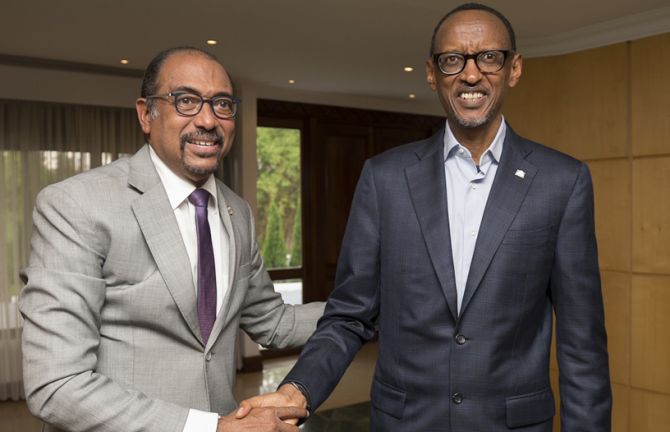
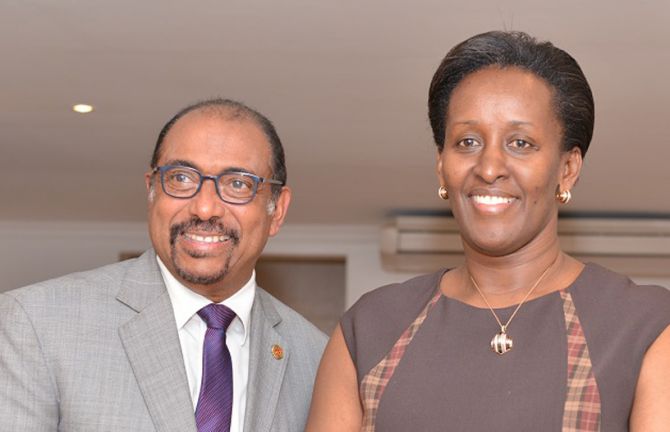
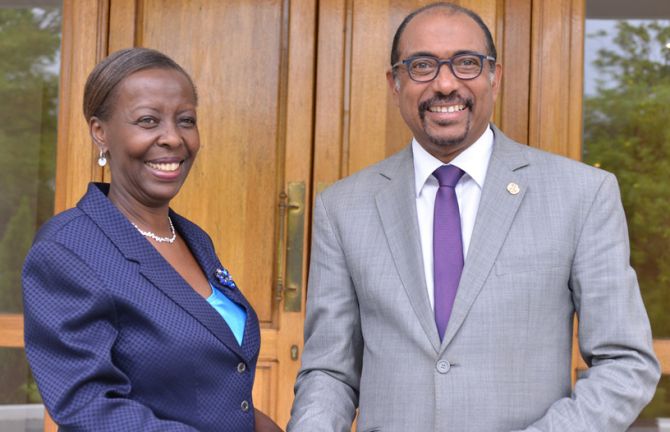
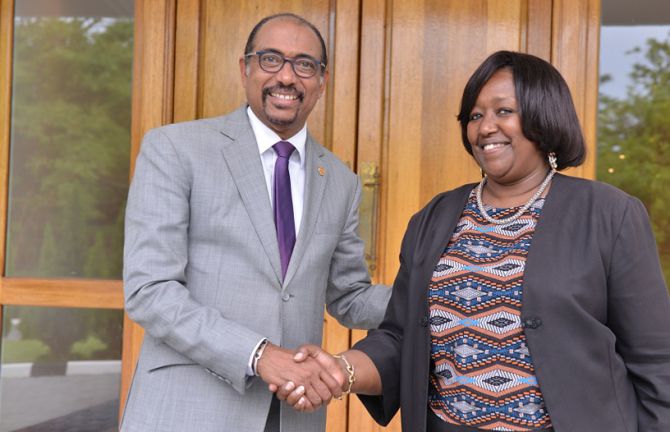
Update
Rwanda gets closer to having an AIDS-free generation
10 December 2015
10 December 2015 10 December 2015In 2014 in Rwanda, more than 95% of pregnant women living with HIV had access to antiretroviral medicines to prevent the transmission of HIV from mother to child. As a result, the country had fewer than 500 new infections among children last year, paving the way to achieving an AIDS-free generation. The incidence rate for HIV is estimated to be a stable and low 0.11%.
During a visit to Rwanda on 9 and 10 December, UNAIDS Executive Director Michel Sidibé celebrated the country’s achievements and praised President Paul Kagame on his government’s leadership in the continental AIDS response.
Mr Sidibé called on Rwanda to sustain the gains made in health and development and urged the country to keep moving towards sustainable financing for health and HIV.
He also met with the Minister of Health, the Minister of Foreign Affairs and Cooperation, the First Lady and civil society organizations. Mr Sidibé stressed the major role that civil society has to play in advocating for those being left behind in the AIDS response and in pushing for social justice and transformation. Civil society representatives highlighted that access to services for all, including key populations, has been ensured in Rwanda, although stigma and discrimination remain a challenge.
The importance of meaningful community engagement for health and development was further demonstrated during a visit to the Millennium Village Project in Mayange, 40 kilometres south of the capital. It is one of 14 clusters of Millennium Villages that operate across sub-Saharan Africa, serving the poorest and most remote communities in the region. Mayange has three health facilities: a health centre and two health posts.
Mr Sidibé visited the Mayange health centre, which uses an integrated approach to prevent new HIV infections and promote sexual and reproductive health services and family planning. No babies have been born with HIV in the Mayange health centre since 2013, showing that the elimination of mother-to-child transmission of HIV is within reach in Rwanda. Mr Sidibé congratulated the health centre and the local leaders, adding that change is possible with leadership, commitment and passion.
Mr Sidibé also participated in the signing ceremony of the Paris Declaration to Fast-Track the HIV response in cities, which took place at Kigali City Hall on 10 December. The Mayor of Kigali, Fidele Ndayisaba, committed to accelerate the response in the capital and to lead, guide and support other urban areas in doing so. The cities initiative will help translate commitments to Fast-Track the HIV response into targeted actions and rapid results through a focus on location and population.
Quotes
“I congratulate the President of Rwanda on his leadership and on championing a people-centred approach to health and development for everyone in Rwanda. Rwanda is on the Fast-Track to end the AIDS epidemic by 2030.”
“On our journey towards an HIV-free generation, we use evidence for a results-oriented approach and we bring services to those who are most in need. Rwanda is committed to accelerating the response to end AIDS.”
“AIDS is everyone’s business. It is everyone’s responsibility to act to end AIDS by 2030. The signing of the Paris Declaration is not just a ceremony, it is a signature for action, and we are all invited to take action.”
“As local leaders, we are committed to sustain the achievements and achieve more through cooperation, involvement and participation. When we have hope for the future, we invest in the future. Ending AIDS is possible; we have demonstrated it here.”
Region/country
Related

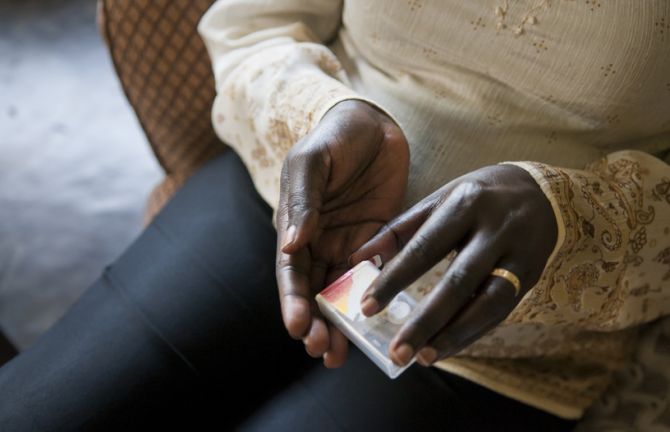
Update
High-level panel meets to find innovative solutions to expand access to medicines
11 December 2015
11 December 2015 11 December 2015The recently appointed United Nations High-Level Panel on Access to Medicines is meeting for the first time on 11 and 12 December in New York, United Sates of America, to explore innovative approaches of ensuring access to medicines for people most in need. The panel was set up as part of efforts to achieve Sustainable Development Goal 3: ensuring healthy lives and promoting the well-being of people of all ages.
The UN Secretary-General established the panel based on the findings and recommendations of the Global Commission on HIV and the Law convened by UNDP on behalf of UNAIDS. Its aim is to ensure that everyone can access quality, affordable treatment while incentivizing innovations and new health technologies. The newly established High-Level Panel will review and assess proposals and recommend solutions to policy incoherencies between the rights of inventors, international human rights law, trade rules and public health in the context of access to health technologies.
“Despite the progress that has been made in tackling a number of major global health challenges over the past three decades, so many people have been left behind,” said UNDP Administrator Helen Clark. “Disease and poor health are still big barriers to social and economic development in many countries, and our world has yet to witness truly inclusive and equitable development,” she added.
“Governments and the private sector have a responsibility to ensure that medicines are accessible to everybody,” said UNAIDS Executive Director Michel Sidibé. “The AIDS response is proof that access to affordable and effective medicines can halt and reverse an epidemic, contributing to an increase in life-expectancy and healthier communities.”
Generic competition in the pharmaceutical industry, fostered by the use of flexibilities in the application of intellectual property has helped make life-saving HIV medicines much more affordable and allowed the massive scale-up of HIV treatment programmes. For example, in 2000, the price of antiretroviral medicines was around US$ 10 000 per person per year. The price of first-line treatment has now been reduced to as low as US$ 100 per person per year in some countries, ensuring access to life-saving medicines for around 15.8 million people in 2015.
However, despite the price reductions, 21.1 million of the 36.9 million people living with HIV still don’t have access to treatment and the price of second- and third-line HIV medicines are out of reach of many people. Since HIV treatment is for life, there is a continuous need for innovation on treatment regimens and sustained price reduction in HIV-related products, including diagnostics and treatment of opportunistic diseases, co-infections (like hepatitis B and C, and TB), and co-morbidities, and more funding for research and development into a vaccine and cure for HIV.
Some 16 members make up the high-level panel, bringing with them expert knowledge of the broad range of trade, public health, human rights and legal issues associated with innovation of health technologies and access to treatment. The panel, co-chaired by Festus Mogae, former President of Botswana, and Ruth Dreifuss, former President of Switzerland, will look at the urgent need for alternative models to foster research and development for global public health threats, including diseases for which financial returns are not guaranteed. They will cover not only infectious diseases, such as HIV and hepatitis C, but also the rising burden of non-communicable diseases and the affordability of health technologies. The panel will present its report to the UN Secretary-General in June 2016.
Related

Update
Parliamentarians in Djibouti commit to a people-centred approach to Fast-Track the end of the AIDS epidemic
14 December 2015
14 December 2015 14 December 2015The Parliament of Djibouti has adopted a new plan to Fast-Track the end of the AIDS epidemic and increase protection for people living with HIV and key populations.
The new strategy was formulated during a workshop attended by deputies as part of Djibouti’s national week of action against HIV. Opened by the Minister of Health and the Speaker of the National Assembly, the event brought parliamentarians together with people living with HIV and representatives of civil society organizations, the national AIDS, tuberculosis and malaria council and the United Nations. The workshop was an opportunity for parliamentarians to hear directly from people living with HIV about the social and legal challenges they face, including stigma and discrimination.
The participants welcomed recent progress in the response to HIV in Djibouti, especially the decrease in HIV prevalence from 3% in 2000 to 1.6% at the end of 2014 and legislation introduced to strengthen the protection of people living with HIV and other vulnerable groups. The workshop also reviewed critical challenges to the HIV response, including the limited uptake of services to prevent mother-to-child transmission of HIV and pervasive stigma, discrimination and other human rights violations towards people living with HIV and key populations.
In drawing up the new plan, parliamentarians said better coordination across government was required to implement the non-discrimination provisions of existing legislation. They also called for a public meeting at parliament with the National Network of People Living with HIV to raise awareness about stigma and discrimination.
Quotes
“This workshop has been a unique opportunity for us to bring the realities of our lives and challenges to the representatives of the people of Djibouti. Now we want them to take action to help us fight stigma and discrimination and to ensure access to services to improve the well-being of all people living with HIV.”
“As Members of Parliament, our role is to engage people living with HIV, health-care workers and other stakeholders to support the response to HIV and contribute to the end of HIV-related stigma and discrimination.”
“Parliamentarians can provide an important boost to efforts to Fast-Track the HIV response. UNAIDS will continue working with them to translate their commitment into concrete actions to accelerate a rights-based and people-centred response to HIV.”
Region/country
Related
 Government ensures continuity of treatment in Malawi
Government ensures continuity of treatment in Malawi

10 February 2025





